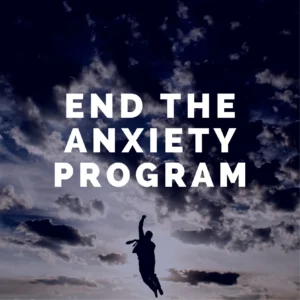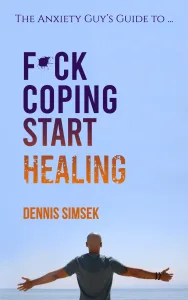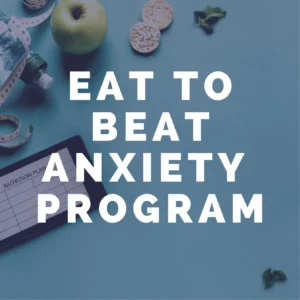We’ve all been there, you feel an unusual sensation in your body, and within seconds, you’re on Google, searching for symptoms. Before you know it, you’re convinced you have a life-threatening condition. This habit fuels health anxiety and keeps you trapped in an exhausting cycle of fear and reassurance-seeking. 1Let’s break down why Googling symptoms is harmful and how to regain peace of mind.
Table of Contents
- Why Overanalyzing Can Be Misleading
- Cyberchondria vs Hypochondria
- When Your Mind Creates Symptoms That Don’t Exist
- Dr. Google vs. Real Medical Professionals
- Why Mindfulness Matters
- The Hidden Cost
- The Dangers of Self-Diagnosis
- Finding the Upside
- Steps to Stop Googling Your Symptoms
- Frequently Asked Questions

Not Every Illness Shows Symptoms—Why Overanalyzing Can Be Misleading
The main drawback of performing symptom checks through the internet is that several diseases do not display noticeable symptoms. The wide options from Google are accessible yet it remains unaware of your health records and emotional state or how anxiety causes bodily sensations. The nervous thoughts in your mind will gravitate toward worst-off scenarios which will intensify your fears instead of showing what really is happening.2
Cyberchondria vs Hypochondria
The contemporary version of hypochondria called Cyberchondria emerges from health anxiety which thrives when people perform excessive internet inquiries about medical topics. Obtaining information seems like a control-restoring method but creates an opposite effect instead. An increase in Google searches produces uncertainty that drives more searches and aggravates anxiety levels.
When Your Mind Creates Symptoms That Don’t Exist
Anxiety produces physical symptoms even though medical evaluations show no physical origin of these symptoms. The signs of stress might include chest tightness combined with dizziness or tingling body parts although these symptoms do not reflect sickness. Online symptom checking causes your mind to become sensitized to dangers so that everyday body signals start feeling serious.
Dr. Google vs. Real Medical Professionals: Who Should You Trust?
The process of symptom evaluation on Google differs substantially from a trained doctor who assesses medical conditions in the context of patient health. The first results of online searches prioritize the most extreme medical problems so your unaffected symptoms appear life-threatening. Consulting a medical expert through scheduled appointments offers better symptom assessment than searching with Google as a substitute for professional guidance.
Why Mindfulness Matters in Your Online Health Searches
Health anxiety thrives on uncertainty. Mindfulness practice enables patients to focus on the present moment while monitoring bodily sensations without performing judgment which reduces their need to search information through Google. Your objective should be achieving comfort with delayed knowledge and the trust your body requires to heal naturally.
The Hidden Costs of Searching Symptoms Instead of Seeking Treatment
Endless symptom-checking doesn’t lead to peace of mind—it leads to more fear. It can also prevent you from getting proper medical care, as you may rely on self-diagnosis instead of seeking expert advice. Over time, this habit can increase stress, disrupt sleep, and negatively impact your quality of life.
The Dangers of Self-Diagnosis and Why It Can Make Things Worse
Your self-diagnosed illness leads you to interpret symptoms improperly which prolongs the time needed for proper medical intervention. Your incorrect self-diagnosis may lead you to believe in nonexistent conditions which triggers both additional medical testing and continuous nervousness. Adult peace can only be found by trusting licensed professionals instead of depending on search engines.
Finding the Upside: How Health Anxiety Awareness Can Help
Being aware of your situation marks the essential beginning to escape from health anxiety. The identification of Google symptom searches combined with their underlying reasons enables you to halt your thought process and shift your attention elsewhere. Online research for reassurance should be replaced with grounding techniques together with deep breathing and enjoyable activities which will adjust your mental perspective.
Steps to Stop Googling Your Symptoms
- Recognize the Habit – Pay attention to when you feel the urge to Google. Is it after noticing a physical sensation or during a stressful moment?
- Delay the Urge – Set a timer for 10 minutes before searching. Engage in another activity, like walking or journaling, to see if the urge passes.
- Challenge the Need for Certainty – Ask yourself: Has Googling ever truly provided lasting relief? The answer is usually no.
- Seek Professional Reassurance – If you’re genuinely concerned, consult a doctor and commit to trusting their guidance.
- Redirect Your Focus – Shift attention to what is working in your body and engage in activities that bring you joy.
- Sit with Uncertainty – Accepting that we can’t have absolute certainty about our health at all times is key to healing health anxiety.
If you take one thing away from this, let it be this: Googling will never provide the peace you’re searching for. True peace comes from trusting yourself and your body once again.
If you need structured guidance on overcoming health anxiety, the Health Anxiety Recovery Program at T offers a proven step-by-step path to healing. Don’t go through this alone—support is available.
Frequently Asked Questions
How can cyberchondria influence health and well-being?
Cyberchondria can increase stress, heighten anxiety, and lead to unnecessary medical concerns. Ongoing online checking of symptoms strengthens anxious thinking patterns which creates emotional distress and sometimes produces anxiety-related physical health problems. The repetitive online health-related research develops a continuous worry pattern that harms total well-being.
How can I stop cyberchondria?
Breaking free from cyberchondria requires awareness and intentional action. Controlling access to online symptom searches should be combined with mental challenge techniques and mindfulness practice to handle uncertainty. Consulting with doctors or therapists provides individuals with tools to restructure their health anxiety and acquire better ways of dealing with it.
How does cyberchondria develop?
Cyberchondria often develops from a combination of anxiety, fear of illness, and easy access to medical information online. People who experience past health concerns together with access to alarming medical stories or live with anxiety disorders tend to overcheck their symptoms and act out of fear.
What does cyberchondria mean?
Cyberchondria refers to excessive online health-related research that leads to increased anxiety about having serious illnesses. Online research of health symptoms during the digital era represents modern hypochondria as people repetitively search symptoms which they mistake for serious diseases.
Citations
- Cyberchondria: a systematic review | Emerald Insight. (2020). Internet Research, 31(2), 677–698. https://doi.org
↩︎ - Wetzel, A.-J., Malte Klemmt, Müller, R., Rieger, M. A., Joos, S., & Koch, R. (2024). Only the anxious ones? Identifying characteristics of symptom checker app users: a cross-sectional survey. BMC Medical Informatics and Decision Making, 24(1). https://doi.org
↩︎




